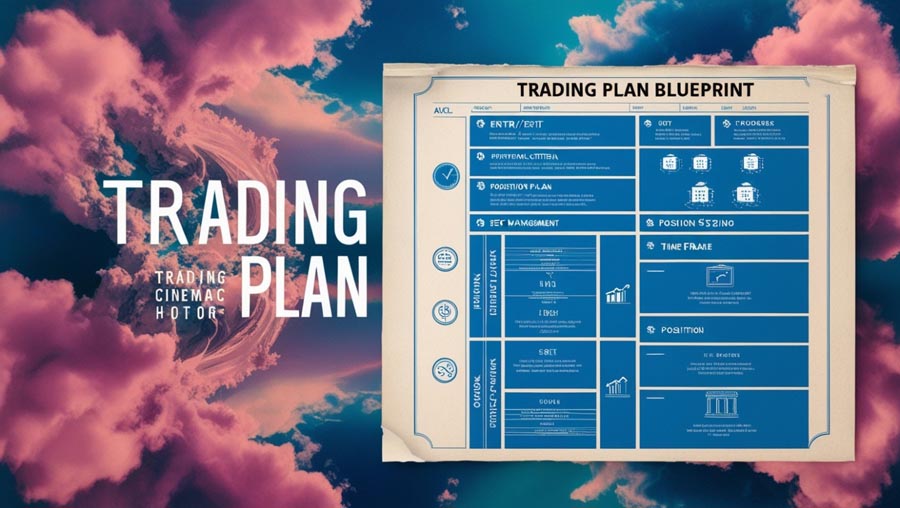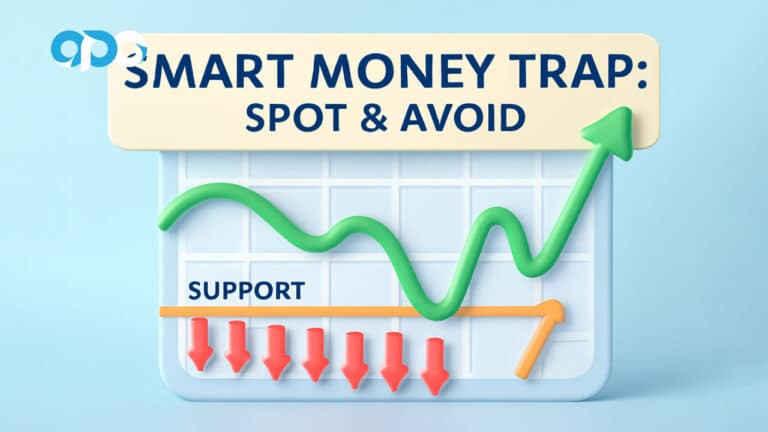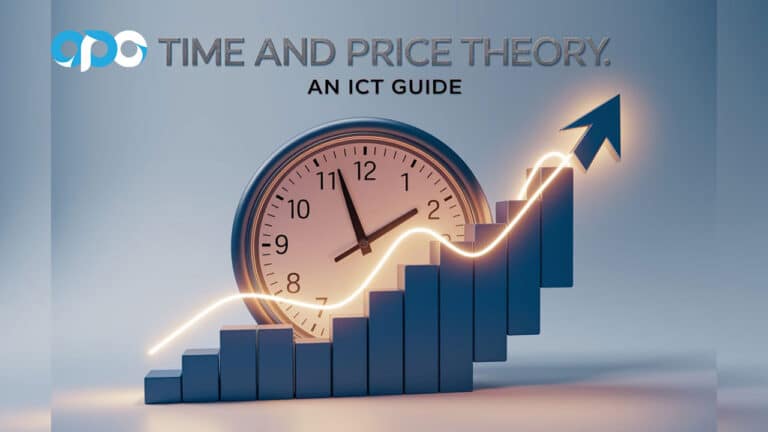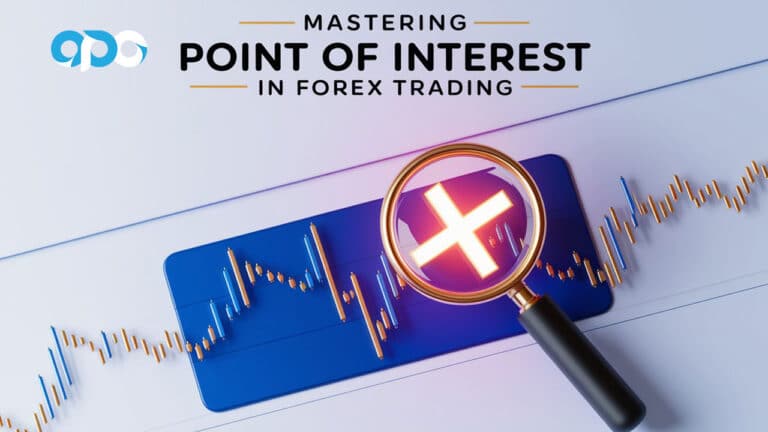In the high-stakes world of trading, the Fear of Missing Out (FOMO) can be a trader’s worst enemy. Whether you’re dealing with FOMO in forex trading, working with a reliable broker for forex trading, or struggling with how to overcome FOMO in trading generally, this comprehensive guide will equip you with five proven tactics to beat this common challenge. By learning how to deal with FOMO in trading, you’ll make more rational decisions and ultimately increase your profitability.

To conquer the fear of missing out in trading, focus on developing a robust trading plan, practicing emotional discipline, conducting thorough market analysis, maintaining a detailed trading journal, and continuously educating yourself about market trends and dynamics. These strategies will help you make more informed decisions, reduce impulsive trades, and ultimately lead to better trading outcomes.
Let’s dive into each of these tactics in detail, exploring how they can transform your trading approach and help you achieve long-term success in the markets.
1. Develop a Rock-Solid Trading Plan
The Foundation of FOMO-Free Trading
A well-crafted trading plan is your first line of defense against FOMO. It serves as a roadmap, guiding your decisions and helping you stay focused on your long-term goals. By having a clear plan in place, you’re less likely to be swayed by short-term market fluctuations or the fear of missing out on potential opportunities.

Key Components of an Effective Trading Plan:
- Clear entry and exit criteria: Define specific conditions that must be met before entering or exiting a trade. This helps eliminate guesswork and emotional decision-making.
- Risk management rules: Establish strict guidelines for position sizing and stop-loss placement to protect your capital.
- Position sizing guidelines: Determine how much of your capital to allocate to each trade based on your risk tolerance and overall strategy.
- Time frames for analysis and execution: Specify which time frames you’ll use for analysis and when you’ll execute trades to maintain consistency.
- Trading goals: Set realistic, measurable goals for your trading performance, both short-term and long-term.
- Market analysis framework: Outline the specific technical indicators, fundamental factors, or other analysis tools you’ll use to evaluate potential trades.
Action Steps to Develop Your Trading Plan:
- Research various trading strategies that align with your personality and risk tolerance.
- Backtest potential strategies using historical data to assess their effectiveness.
- Paper trade to refine your chosen strategy and identify any weaknesses.
- Regularly review and adjust your plan based on performance and changing market conditions.
- Seek feedback from experienced traders or mentors on your plan’s strengths and potential areas for improvement.
Remember, a good plan should align with your risk tolerance, trading style, and financial goals. Don’t hesitate to adapt as you gain more experience and market conditions evolve. A flexible yet structured approach will help you stay resilient in the face of FOMO-inducing market movements.
2. Master Emotional Discipline
The Key to Rational Decision-Making
Emotional control is paramount in overcoming FOMO and making level-headed trading decisions. Developing emotional discipline takes time and effort, but it’s essential for long-term trading success. By mastering your emotions, you’ll be better equipped to stick to your trading plan and avoid impulsive actions driven by fear or greed.
Read More: How to Overcome Greed in Forex Trading?

Techniques to Improve Emotional Discipline:
- Mindfulness meditation: Practice daily meditation to increase self-awareness and emotional regulation.
- Breathing exercises: Use deep breathing techniques to calm your nerves during stressful market situations.
- Visualization techniques: Mentally rehearse challenging trading scenarios to prepare for emotional responses.
- Cognitive restructuring: Learn to identify and challenge negative thought patterns that contribute to FOMO.
- Journaling: Record your thoughts and emotions related to trading to gain insights into your psychological triggers.
Steps to Cultivate Emotional Discipline:
- Develop a pre-trading routine to center yourself and set a positive mindset for the day.
- Keep a trading journal to track your emotional states and their impact on your decision-making.
- Practice detachment from individual trade outcomes, focusing instead on long-term performance.
- Learn to accept and learn from losses without dwelling on them or letting them affect future trades.
- Set realistic expectations for your trading performance to avoid unnecessary emotional highs and lows.
- Engage in regular physical exercise to reduce overall stress and improve emotional resilience.
Remember, emotional discipline is a skill that improves with practice. Be patient with yourself and consistently work on developing this crucial aspect of trading psychology. Over time, you’ll find yourself better able to resist the urge to act on FOMO and make more rational trading decisions.
3. Conduct Thorough Market Analysis
Making Informed Decisions, Not Emotional Reactions
One of the most effective ways to combat FOMO is to base your trading decisions on comprehensive market analysis rather than gut feelings or fear of missing out. By developing a systematic approach to analyzing market conditions, you’ll be more confident in your decisions and less likely to be swayed by emotional impulses.

Key Areas of Market Analysis:
- Technical analysis: Study chart patterns, indicators, and trends to identify potential entry and exit points.
- Fundamental analysis: Evaluate economic data, company financials, and industry trends to understand the underlying factors driving asset prices.
- Sentiment analysis: Gauge market mood and investor psychology to anticipate potential shifts in market direction.
- Intermarket analysis: Examine relationships between different asset classes to gain a broader perspective on market dynamics.
- Volume analysis: Assess trading volume to confirm price movements and identify potential reversals.
- Market structure analysis: Understand the overall market structure, including support and resistance levels, trend lines, and key price zones.
Read More: How to Overcome Fear in Forex Trading
Steps to Improve Your Market Analysis Skills:
- Develop a systematic process for analyzing markets, incorporating multiple analysis types.
- Use multiple time frames to confirm trends and entry points, ensuring a more comprehensive view.
- Combine different types of analysis for a more robust decision-making framework.
- Stay updated on economic news and events that impact your traded assets.
- Regularly review and refine your analysis techniques based on their effectiveness in real-world trading scenarios.
- Consider using advanced analytical tools and software to enhance your market analysis capabilities.
Remember, the goal of market analysis is not to predict the future with certainty, but to make informed decisions based on available information and probabilities. By grounding your trading decisions in thorough analysis, you’ll be less susceptible to FOMO-driven impulses and more likely to stick to your trading plan.
4. Maintain a Detailed Trading Journal
Your Personal Trading Performance Database
Keeping a comprehensive trading journal is an invaluable tool for overcoming FOMO and improving your trading performance. It provides concrete data and insights that can help you make more rational decisions and resist impulsive trades. A well-maintained journal serves as a personal database of your trading history, allowing you to identify patterns, strengths, and areas for improvement.

Key Elements to Include in Your Trading Journal:
- Trade details: Record entry and exit points, position size, asset traded, and any relevant market conditions.
- Market analysis: Document the technical, fundamental, or other analyses that led to your trading decision.
- Emotional state: Note your emotional state before, during, and after the trade to identify any psychological factors influencing your decisions.
- Trade rationale: Explain why you entered the trade and how it aligns with your overall trading strategy.
- Lessons learned: Reflect on each trade, identifying what went well and areas for improvement.
- Performance metrics: Track key performance indicators such as win rate, average win/loss, and risk-reward ratio.
Tips for Effective Journaling:
- Be consistent and disciplined in recording your trades, making it a non-negotiable part of your trading routine.
- Use a structured format for easy analysis and review, whether it’s a spreadsheet, dedicated software, or a physical notebook.
- Include both quantitative data and qualitative observations to get a complete picture of your trading performance.
- Set aside time regularly to review and reflect on your journal entries, looking for patterns and insights.
- Use your journal to test and validate new trading ideas or strategies before implementing them with real capital.
- Consider sharing your journal entries with a mentor or trusted trading peer for additional insights and feedback.
Remember, a trading journal is only as valuable as the effort you put into maintaining and analyzing it. Make it a habit to update your journal after each trading session and conduct periodic reviews to extract meaningful insights. By consistently journaling your trades, you’ll develop a data-driven approach to trading that helps combat FOMO and improves your overall performance.
5. Commit to Continuous Education
Stay Ahead of the Curve
The trading landscape is constantly evolving, with new strategies, technologies, and market dynamics emerging regularly. By committing to continuous education, you’ll stay ahead of the curve and be less susceptible to FOMO-driven decisions. A well-informed trader is better equipped to evaluate opportunities objectively and resist the urge to follow the crowd or act on unsubstantiated rumors.

Areas of Focus for Ongoing Education:
- Trading psychology and behavioral finance: Deepen your understanding of the psychological factors that influence trading decisions.
- Advanced technical and fundamental analysis techniques: Stay updated on the latest analytical tools and methodologies.
- Risk management and portfolio optimization: Learn advanced strategies for protecting your capital and maximizing returns.
- Emerging market trends and asset classes: Explore new opportunities and diversify your trading knowledge.
- Regulatory and compliance issues: Stay informed about changes in trading regulations and their potential impact on your strategies.
- Trading technology and automation: Learn about new trading platforms, algorithms, and automation tools that can enhance your trading efficiency.
Read More: Trading Psychology in Forex
Strategies for Continuous Learning:
- Read books, articles, and research papers on trading and investing from reputable sources.
- Attend webinars, workshops, and trading conferences to learn from industry experts and network with fellow traders.
- Join trading communities and forums to exchange ideas with peers and stay updated on market discussions.
- Consider mentorship or coaching from experienced traders to gain personalized insights and guidance.
- Enroll in online courses or formal education programs to deepen your knowledge in specific areas of trading.
- Experiment with paper trading or small position sizes to test new strategies and ideas in a low-risk environment.
Remember, the goal of continuous education is not just to accumulate knowledge, but to apply it effectively in your trading practice. Regularly assess how new information can be integrated into your trading strategy and decision-making process. By staying curious and open to learning, you’ll build a solid foundation of knowledge that helps you resist FOMO and make more informed trading decisions.
Conclusion
Overcoming the fear of missing out in trading is a challenging but essential journey for any trader seeking long-term success. By implementing the five tactics outlined in this guide – developing a solid trading plan, mastering emotional discipline, conducting thorough market analysis, maintaining a trading journal, and committing to continuous education – you’ll be well-equipped to combat FOMO and make more rational, profitable trading decisions.
Remember that overcoming FOMO is an ongoing process that requires patience, discipline, and self-awareness. As you apply these strategies consistently, you’ll gradually develop a more resilient trading mindset that prioritizes long-term success over short-term gratification. Stay committed to your goals, trust in your strategy, and remain open to learning and improvement.
By focusing on these key areas, you’ll not only reduce the impact of FOMO on your trading but also enhance your overall trading performance. You’ll develop the skills to identify genuine opportunities, manage risk effectively, and make decisions based on sound analysis rather than emotional impulses.
As you continue on your trading journey, remember that setbacks and challenges are part of the learning process. Use them as opportunities for growth and refinement of your approach. With time and practice, you’ll find yourself making more confident, informed trading decisions, free from the disruptive influence of FOMO.
Ultimately, success in trading comes from within – it’s about mastering your mind as much as mastering the markets. By implementing these strategies and staying committed to your personal growth as a trader, you’ll be well on your way to achieving sustainable, long-term success in the dynamic world of trading.
How long does it typically take to overcome FOMO in trading?
Overcoming FOMO is a gradual process that varies for each individual. Some traders may see significant improvements in a few months, while others might take a year or more. The key is consistent application of the strategies discussed and ongoing self-reflection. Remember, it’s not about completely eliminating FOMO, but rather developing the skills to manage it effectively. Factors that can influence the timeline include your trading experience, emotional self-awareness, and commitment to implementing the tactics outlined in this guide.
Are there any tools or apps that can help traders combat FOMO?
Yes, several tools and apps can assist in managing FOMO:
Trading simulators for risk-free practice (e.g., TradingView, NinjaTrader)
Meditation apps for emotional control (e.g., Headspace, Calm)
Trading journal software (e.g., Tradervue, EdgeWonk)
Risk management calculators (e.g., Position Size Calculator, Risk/Reward Ratio Calculator)
Market analysis platforms with customizable alerts (e.g., TradingView, MetaTrader)
Emotion tracking apps (e.g., Mood Meter, Daylio)
While these tools can be helpful, they should complement, not replace, the fundamental strategies for overcoming FOMO in trading. The most effective approach combines technology with personal development and disciplined trading practices.







